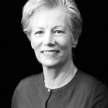Review of Mary Doria Russell’s 'The Sparrow' Series - the 20th Anniversary
"They meant no harm."

Author Mary Doria Russell was born in Elmhurst, Illinois, into a military family, her father a drill instructor in the Marines and her mother a nurse in the Navy. Raised a Catholic, she left the church as a teenager, but the struggle to parse faith and the role of religion is etched into her works. Russell earned an undergraduate degree in Cultural Anthropology from the University of Illinois [Urbana-Champaign], a masters in Social Anthropology at Northeastern University in Boston, and a Ph.D. in Biology Anthropology at the University of Michigan, in Ann Arbor.
As an author, Russell refuses to be bound to writing within a specific genre—her WWII novel, A Thread of Grace, is a masterpiece of historical fiction based on well-researched accounts and interviews, and a story rarely told of the Italians’ role in saving Jews fleeing from the Nazis. With her superlative research chops, no matter if her novel is set in the future or in the past, she excavates the bones of a story, searching for the life below the surface, and creating characters from the dust to tell the tale.
Mary Doria Russell’s debut speculative fiction novel, The Sparrow, exploded on the scene in 1996, followed by the sequel Children of God in 1998, and this year marks the twentieth anniversary of the completion of The Sparrow Series. Critically acclaimed, The Sparrow won multiple honors: The Arthur C. Clarke Award, the James Tiptree, Jr., the Kurd Laßwitz and the British Science Fiction Association Awards, to name a few.
Speculative fiction at its best, The Sparrow weaves Russell’s beautifully developed characters into a story of multifaceted social commentary as fresh and searing as when it was first published. Russell infuses several of her novels with religious references, and the title of The Sparrow is no exception. In the Gospel of Matthew 10:29-31, “...not even a sparrow falls to the earth without God’s knowledge thereof.”
The Sparrow is set in the near future [year 2019!] when scientists at the Arecibo Observatory detect radio broadcasts of music from the vicinity of Alpha Centauri, originating from an earth-like planet named Rakhat. The Society of Jesus, the Jesuits, known for their missionary, linguistic, and scientific endeavors, underwrite a voyage to Rakhat, via a modified asteroid, to establish first contact with the planet. The main character, Father Emilio Sandoz, a Jesuit and a superb linguist, believes that God has assembled this group of people, with unique skills and talents, for this mission.
But all is not as it seems after they reach the planet of Rakhat. The crew descends to the surface and acclimate themselves to the new world, studying the fauna and flora of this Eden, and eventually make contact with a tribe of sentient herbivores, the Runa. Emilio Sandoz learns enough of the Runa language to communicate with the gentle creatures and realizes that they are not the ones broadcasting the music. A trader, Supaari VaGayjur, of the Jana’ata tribe, the dominant and carnivorous species on the planet, visits the Runa village, and the expedition discovers that these are the beings broadcasting the songs.
The story deftly flashes back and forth in time from the events during the trip to “present” day after the return to Earth of the only apparent survivor of the voyage, Emilio Sandoz, who is suffering from both physical and mental wounds—and facing a moral crisis in his faith in God.
The Children of God, the sequel to The Sparrow, picks up the story of a shattered Emilio Sandoz, who has rejected God and the priesthood. After the slow healing of his body and mind, Sandoz is now training a new crew for a return mission to Rakhat to find the lost crew members and re-establish contact with the beings on the planet. The story reveals that in the decades since the first mission, a rift has occurred in the social fabric on Rakhat—sparked from human influence.
In The Sparrow Series, Russell delves into the consequences of human interaction with alien life. When humans do make first contact with a sentient being, will they be prey or predator? Will our religious beliefs survive the brave new world of interstellar travel? Just as Heisenberg’s Uncertainty Principle predicts, observations and contact can affect those being observed, and potentially affect the observers as well, leading to moral dilemmas of epic proportions. A quote from the book says it all: They meant no harm.
K.E. Lanning is the author of THE MELT TRILOGY: A Spider Sat Beside Her, The Sting of the Bee, and Listen to the Birds [2019].

About the Creator
K.E. Lanning
Author of commercial literary and speculative fiction. www.kelanning.com, @kelanningauthor, https://www.facebook.com/KELanning1/ https://www.instagram.com/kelanningauthor/






Comments
There are no comments for this story
Be the first to respond and start the conversation.